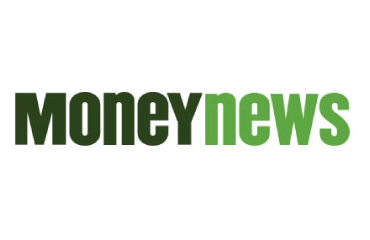At MoneyNews: Bitcoin Can Open Doors of the Global Economy for 2.5 Billion People
More than 2.5 billion people in the world do not have access to a bank account. Bitcoin can change that. Greater use of bitcoin worldwide would expand opportunities for the poor, raise the standard of living in developing nations and boost global economic growth.
In the current global financial system, not having a bank account causes many obstacles that prevent a person from improving their circumstances. For example, savings becomes what you can store in your home, which is subject to a high risk of robbery or burglary. And there is a limit to how much you can store before it becomes impractical, like having some reserves or saving enough to buy an appliance, car or home.
Without a bank account, a person also does not have access to credit. Without access to credit, loans become nearly impossible to obtain and everything must be paid for in cash. That means one cannot establish a credit history. Without a credit history, a person cannot apply for or be approved for a credit card. Without a credit card, a person typically cannot make online purchases. In the unlikely case that an unbanked person is able to obtain a credit card, he or she would not have a checking account to pay their balance.
Even if a person qualifies for a bank account, many of the world’s unbanked live in areas where there are no bank branches and would have to travel considerable distances to access one. Many are illiterate and would have trouble filling out the complex paperwork. And then, there are the costs. Many worldwide banks charge to open and maintain a bank account. On top of all that, many of the unbanked live in countries where the banking system is not trusted. If you are poor, it is just not worth it.
To take advantage of the plight of the unbanked, an alternative financial services industry has grown. On average, check-cashing centers charge fees of 3 percent to 5 percent of the check amount. There are businesses that give loans like pawn shops, payday loan businesses, car title loans and refund anticipation loans, all of which are much more expensive than a bank is. There are also person-to-person and crowdfunding alternatives common among certain ethnic communities. And finally, there is organized crime and loan sharks.
How can you break the cycle of oppression that plagues the unbanked and help gain access to economic freedom? In a word: bitcoin.
Here’s how it would work.
Someone without a bank account would receive payment in bitcoin. The person or business paying would transfer bitcoin from their bitcoin wallet into the unbanked person’s bitcoin wallet.
That’s it. No paper check to cash, no direct deposit into a bank account that doesn’t exist and no big fees from a check-cashing center. This presumes that the person has a mobile phone, which a rapidly increasing number do in developing nations, especially in Africa.
The bankless person would then be able to store as well as make payments in bitcoin. As long as the merchant accepts bitcoin, it would be a simple matter of transferring bitcoin from the bankless person’s digital wallet to the merchant’s digital wallet. A person in Kenya, where 68 percent of the adult population uses mobile phones, can now make a purchase from Amazon.com and have it sent to the appropriate shipping address.
Needing a bank account to receive or send money is increasingly becoming no longer necessary or even preferred. Even in developed nations such as the United States, more people prefer to bank online or via their mobile phones and younger generations may never even step into a bank branch. Increasingly, the individual becomes his or her own bank.
Further, that mobile phone would also be a savings account. Whether a small or huge amount, finding a safe place to store savings is no longer a problem because it would be stored in a digital wallet protected by advanced cryptography. As a result, even if a thief steals the phone, as long as the digital wallet is password protected and the owner keeps the password in a safe place, the funds would be secure. On the new phone, the victim would simply reload their digital wallet and access it with their password.
Imagine the individual impact of being able to access key benefits of the global economy.
If I was an unbanked farmer, I could manage my risks better by being able to access and buy insurance for crops, floods and livestock. A swarm of locusts, torrential rainfall or disease would not devastate my livelihood.
As an unbanked entrepreneur, I would now be empowered to save up for that efficient dependable rice cooker unavailable to me at the local market, purchase it online and have it delivered to me. This could be all the difference in starting a restaurant.
I would immediately get a 3 percent to 5 percent raise because I would not have to pay the high fees to the check-cashing center anymore.
I would be able to save for a rainy day. I could keep piling up reserves without worrying about security and safety. And I could carry it around with me and not have to travel long distances just to withdraw my money from a bank branch.
Bills could be paid from anywhere. Under a cash system, I would have to go in person to the business and pay the bill. Now I could do it with my mobile phone and use the time saved from not waiting in line and traveling to further grow my micro-enterprise.
No single idea today has the potential to have as much positive impact on so many people so quickly — all without government intervention and wasted taxpayer dollars while spurring a completely new ecosystem, job creation and global economic growth.
Originally Published at MoneyNews.com
Categorised in: News
